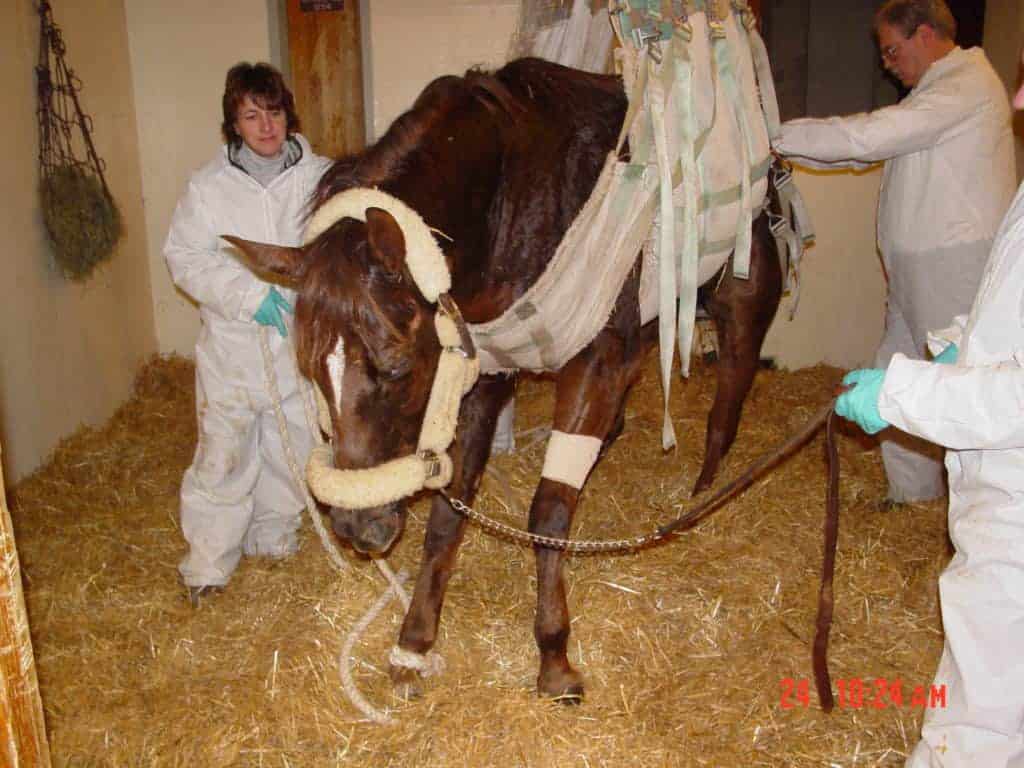
Study Identifies Genetic Risk Factors for Equine Abortions
This is the first study to identify a potential genetic, rather than environmental, cause for foal loss in mares.

This is the first study to identify a potential genetic, rather than environmental, cause for foal loss in mares.
Research topics include musculoskeletal and respiratory issues, parasites on stud farms, early pregnancy loss, and more.

Post-mortem exams are crucial to determine what caused the abortion. Here’s what your veterinarian will look for.

The rare condition–primary hypothyroidism–in mares could be behind a potentially deadly foal problem called CHDS.

The 10th International Equine Infectious Diseases Conference will convene April 4-8 in Buenos Aires, Argentina.
Reported diseases include vesicular stomatitis, equine infectious anemia, strangles, influenza, herpesvirus, and more.

Learn how the respiratory, reproductive, and neurologic forms of equine herpesvirus-1 can impact your horse.
The USDA-approved vaccine prevents the disease responsible for foal abortion, kidney and liver failure, and uveitis.
Reported diseases include equine herpesvirus, strangles, equine viral arteritis, contagious equine metritis, and more

While we can’t prevent all abortions, knowing the risks can help us prepare for and, in some cases, reduce the hazards.

Pregnancy failure in mares is a very real risk; here’s how to prevent or handle it.

Learn how researchers determined that hairy, bristly caterpillars can cause abortions and how to protect mares.

De Negri’s research focused on infections in horses caused by S. equi and S. zooepidemicus.

Researchers believe more than one biomarker is needed for accurate and early placentitis detection.
Reported diseases include CEM, strangles, influenza, EVA, EHV, piroplasmosis, salmonellosis, and more.
Confirmed diseases include contagious equine metritis, strangles, EHV, influenza, and more.
Stay on top of the most recent Horse Health news with
"*" indicates required fields